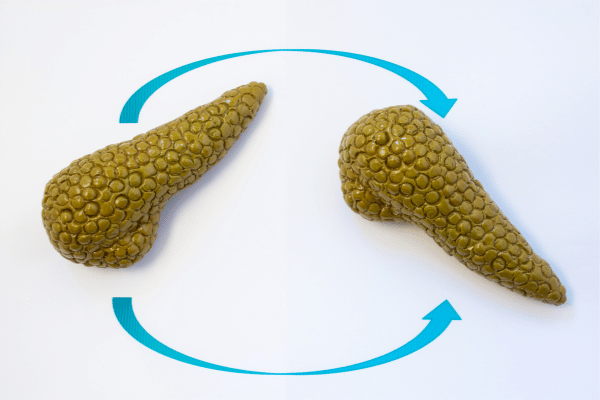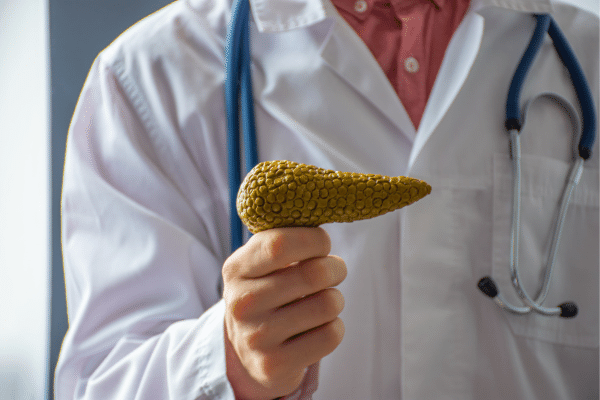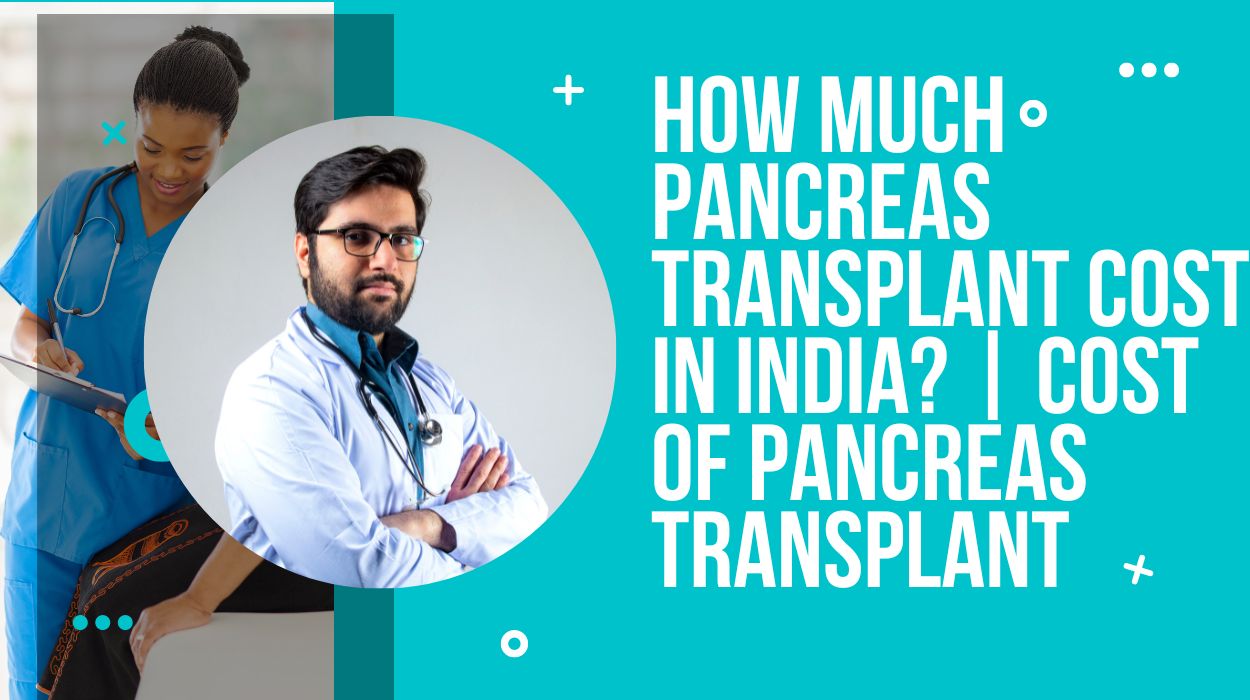A pancreas transplant is usually suggested to a diabetes type one patient alleviate the disorder. If your doctor has recommended a pancreas transplant, naturally, you would have many questions about the cost of acquiring the pancreas? What are the costs involved in the hospital stay? What happens in the procedure?
While the total cost of your surgery depends on various parameters, we shall help you arrive at a roundabout figure that you can expect while also telling you the various types of pancreas transplants and other options that you have, so let’s have a look at them!
What is a Pancreas Transplant?

A pancreas transplant is a surgical procedure where a healthy pancreas replaces a diseased or non-functional pancreas. A healthy pancreas is usually obtained from a donor who is brain dead. A pancreas transplant is recommended for patients who suffer from-
- Type one diabetes
- Renal diseases
- People suffering from pancreatic cancer
- People with poor or no control over their blood sugar levels.
- People who have reactions to insulin
Sometimes a pancreas transplant can be combined or performed after a kidney transplant as both the organs usually get affected together in the above situations. Now let’s look at the costs involved as we go through the steps involved in a pancreas transplant.
What is the cost of Performing a Pancreas transplant in India?

The cost of a pancreas transplant in India can range between Rs 2 lakh to 15 lakhs; this is the average cost that will change according to the type of transplant you need to have, the hospital that you choose, the surgeon and various other factors.
To help make it simpler, the below points will help you get an idea of the steps involved in a pancreas surgery and the costs you can incur during it-
Types of Pancreas Transplants

Four types of a pancreas transplant can be performed according to your need and which fits best for you; the types are-
1. Pancreas alone transplant(PAT)
As the name suggests, a pancreas alone transplant is the transplantation of the pancreas alone. In this, the healthy pancreas obtained from a donor is used to replace the diseased pancreas of the recipient.
This type of transplant is performed when the recipient is in the early stages of diabetes and does not have any kidney damage. This can cost between 2- 15 lakhs.
2. Combined kidney and pancreas transplantation
Also known as simultaneous pancreas-kidneys transplant, the patient receives a new kidney and a pancreas from a donor. Both transplantations are done simultaneously to prevent future kidney damage due to diabetes. This procedure can cost more – around 10-22 lakhs.
3. Pancreas after kidney transplant
A kidney transplant is comparatively faster than a pancreas transplant because you can obtain a kidney from a living person, while the donor needs to be brain dead for a pancreas donation. Hence if a person is suffering from kidney and pancreas damage and you obtain a kidney before the pancreas, then a kidney transplant is performed first, and after you obtain the pancreas, a transplant is performed.
This type of surgery can cost more than a PAT as two surgeries will have to be performed – you can expect around 15- 30 lakhs.
Simultaneous Cadaveric Donor Pancreas and Liver Donor kidney
In this procedure, the patient’s diseased pancreas is not removed; instead, a healthy pancreas taken from a donor is transplanted in the front of the abdomen and is attached with the blood vessels in the lower part of the abdomen. To ensure that the pancreas functions, the duodenum is connected to either the intestine or the bladder. You can expect to incur around 5- 15 lakhs for this procedure.
Waiting for a Donor
Before performing surgery, the patient will have to apply for a donor pancreas. This can be a long process as the number of pancreas donors in the country is low; the reason behind this is the various criteria to be followed before the pancreas is accepted to be transplanted. The criteria are-
- The age of the donor should be between 10-45
- The donor should not have signs of diabetes
- The donor should be brain dead
- The donor should have a body mass index (BMI) of less than 30.
- The donor’s blood type should be compatible with the recipient’s blood type.
The wait on the recipient’s list can get very long for some people; the average wait time for a pancreas transplant can be 23 months, while for a kidney + pancreas transplant, you might have to wait for about 13 months.
During the wait time, if god forbid the patient’s health worsened, then the cost of hospitalization and being kept in the Icu( in some cases) will be added to the total cost. This cost will depend on where you decide to perform the surgery, as different hospitals have different costs.
After you match with a donor, a requirement is that the transplantation must happen within 12-15 hours of the donor’s death. So if the donor lives somewhere far, appropriate transportation will have to be arranged and a suitable carrier will have to be looked into. The cost of all this will be added to your total cost.
Cost of physical tests
Before your transplantation surgery takes place, a doctor will check you for any ailments, and tests will be performed to ascertain if you are fit for the surgery. The hospital you are put up in and the number of tests there will be a cost incurred which will be added to your total hospital bills.
Hospital Room expenses
Before and after a transplant is performed, the patient will have to stay in a hospital room under the doctor’s care. You may be asked to stay for around 3- 7 days.
According to the hospital room type and the hospital you are staying in, the cost of your transplant will increase or decrease. For example, if you stay in a government hospital, the ost of your stay can be around 300- 1000 rupees per day or even nil in some cases, but for private hospitals, you will have to pay according to the room you decide to lodge like a suite room will be more expensive than a regular ward you can incur around 1000 to 10,000 rupees per day. Choose the room you want to stay in by keeping in mind factors like
- Your budget
- The amount of time you will be required to stay in the hospital room (consult your doctor for this)
- And the other medical expenses that you may incur.
Cost of Medicines

Before the transplant, there will be the requirement of medication based on your condition and what the doctor thinks will be the best fit for you.
The cost of this medication mostly stays the same in all hospitals, but some government hospitals may provide it to you at subsidized rates. Check with the hospital to get a clear idea of the medications you will require and the cost.
Cost of Post-surgery Rehabilitation
After the transplant is performed, there is the risk of your body rejecting the donor pancreas. Hence, you will be kept under observation in the Intensive care unit (ICU). Know that the cost of an intensive care unit is higher than that of a normal wardroom, and you can expect around 8,000 to 10,000 rupees per day in a government hospital; the cost will be higher in a private hospital.
After that will be asked to stay a week in the hospital to let your incision wounds heal. Your relationship with the hospital won’t end after that; you will be required to have frequent tests and vaccinations according to what the doctor thinks will be best for you. There will be added cost for this.
Post-surgery care
Post the surgery is crucial for the patient as the donor pancreas can be rejected by the body, and there is also the risk of developing complications like – clotting of blood, bleeding, infection, pancreatitis, hyperglycemia, bleeding, UTI. You will have to take special care of your body and be recommended to a nurse to help keep your incision wounds clean and to help you take proper care of your body; this will have additional costs.
Post-surgery Medication
Life after transplant will be filled with constant medication to prevent your body from rejecting the donor pancreas, account for the costs of these medications, and consult your doctor on these prices to prepare a complete budget.
FAQs
Q. What is the survival rate after a pancreas transplant?
After performing a pancreas transplant, 95% of people survive for the first year; organ rejection has been found in 1% of the total number of people who undergo a pancreas transplant surgery.
Q.How long does a person live after having a pancreas transplant?
Most people survive for many years after having a pancreas transplant. Around nine in ten people who have a pancreas transplant live for upto five years. Even if your donor pancreas stops working after the surgery, you can have another transplant.
Conclusion
Having a transplant can be an expensive affair, but if you can account for all of the costs correctly and budget for them, the process gets a bit easier as you are prepared for almost all the costs you might incur.
We have made this easier for you by stating the various procedures performed before and after a pancreas transplant. To get a precise amount to sit down with your doctor, he will be the best person to give you an idea of how much you might have to pay.
Let us know in the comments which point you found most helpful!
References:
https://www.mayoclinic.org/tests-procedures/pancreas-transplant/about/pac-20384783
https://www.cms.gov/medicare-coverage-database/view/ncd.aspx?ncdid=107&ver=3


